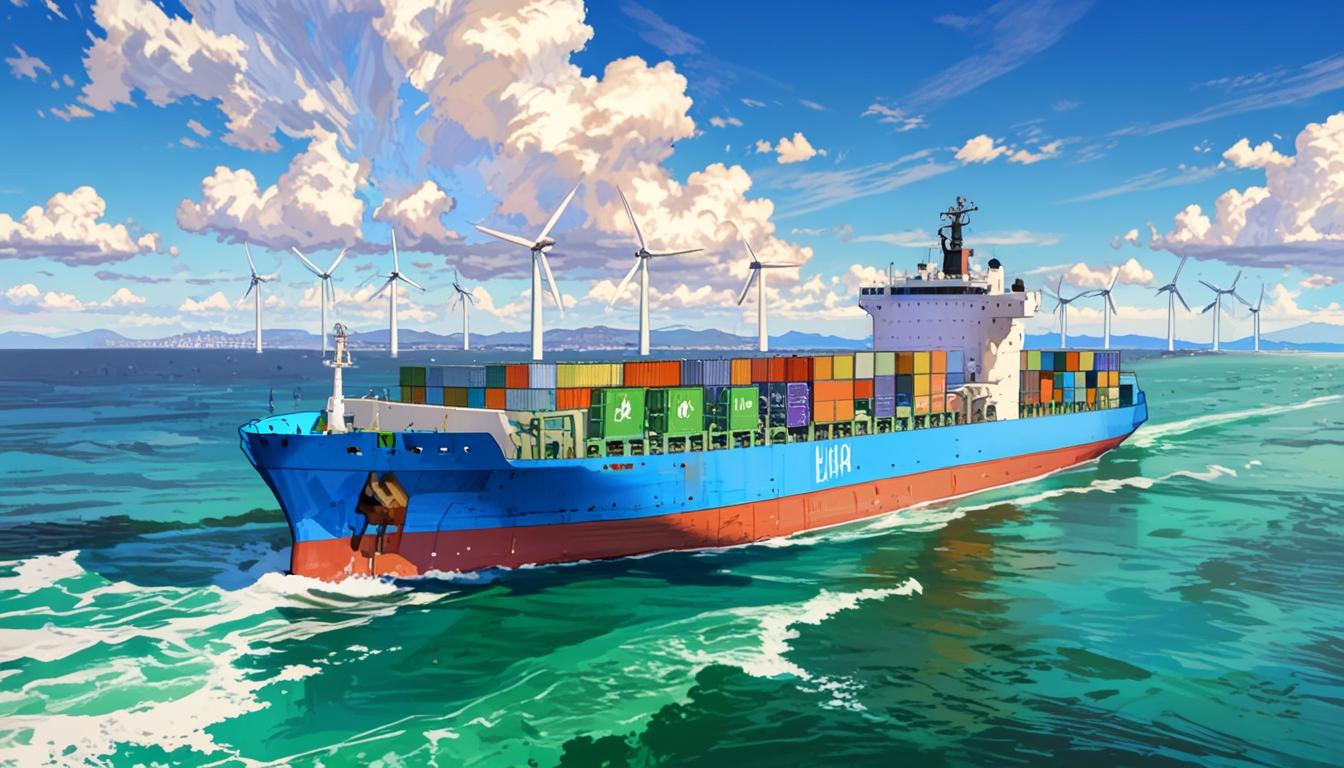Shipping is a major global industry responsible for transporting approximately 90 percent of the world’s trade, but it is also a significant emitter of greenhouse gases, producing around a billion tonnes annually. This accounts for about three percent of global CO2 emissions—more than the combined emissions of Spain, France, Portugal, and Greece. As pressure mounts to reduce the sector’s environmental impact, green hydrogen and biofuels have emerged as potential long-term solutions to decarbonize shipping, with Spain positioning itself at the forefront of this transition.
Green hydrogen is produced through the electrolysis of water, powered by renewable energy sources such as wind or solar power. This process separates hydrogen from oxygen, creating a clean fuel whose combustion results only in water as a by-product. Given Spain’s abundant sun and wind resources, coupled with its strategic location along key global shipping routes, the country is well-placed to become a major hub for green hydrogen production.
Samir Fernandez, Director of Marine Fuels at Spanish energy company Moeve (formerly Cepsa), explained to Hydrogen Central that “green hydrogen forms the base fuel in order to create more manageable fuels like green ammonia, green methanol, which can be used to decarbonize shipping.” Fernandez highlighted ongoing investments in Spain’s southern region, mentioning, “We’re currently building the largest second-generation biofuel plant in southern Spain, with an investment of about €1.2 billion, due for completion in 2026. Apart from that, we’re investing another €1 billion to €2 billion in our green hydrogen value project in the south of Spain.” He also projected that the company plans to invest approximately €8 billion by 2030 to become a leading supplier of low-carbon energy.
The growing interest in green hydrogen production in Spain has attracted significant investment from Chinese companies. Hygreen Energy, a global electrolyser manufacturer, has committed $2.2 billion to projects in Andalusia. Additionally, Envision signed a $1 billion agreement to develop Europe’s first green hydrogen net-zero industrial park, a deal secured during Spanish Prime Minister Pedro Sanchez’s visit to China in September 2024. Sanchez noted Spain’s advantageous position in the green energy sector, stating, “Spain is in a privileged place to take advantage of all the opportunities offered by green energy and the decarbonization of the economy… Together, we are laying the foundation for Spain to become a European leader, as Lei (Zhang – Envision CEO) has said before, and a global player in the green hydrogen revolution.”
Spain has already made considerable strides in renewable energy, currently leading Europe in solar power capacity ahead of Germany. Clean energy production accounts for 66 percent of the country’s electrical capacity, with numerous additional solar and wind projects underway. Experts anticipate that global hydrogen markets could grow to a value of $2.5 trillion annually by 2050, and Spain aims to secure a significant share of this expanding sector.
Despite the optimism surrounding green hydrogen, some sceptics remain unconvinced about its viability as a widespread solution. Critics argue that the production, storage, and transportation of hydrogen consume more energy than the fuel ultimately provides. Furthermore, hydrogen is highly flammable and corrosive, which presents technical challenges. Robert Howarth, professor of ecology and environmental biology at Cornell University and a leading climate scientist, expressed doubts to Hydrogen Central, saying, “There may be some small role for truly green hydrogen in a decarbonized future, but this is largely a marketing creation by the oil and gas industry that has been hugely overhyped.”
Moeve’s Fernandez acknowledged the high costs involved, estimating that a low-carbon industrial sector may require investment upwards of $1.2 trillion. However, some experts concede that green hydrogen could have niche applications, such as replacing fossil-fuel hydrogen plants and supplying shipping and long-haul aviation sectors, where battery technologies may not be practical.
As the shipping industry faces the challenge of reducing its carbon footprint, green hydrogen is scaling up alongside biofuels, representing one pathway in the broader energy transition. Spain’s commitment to renewable energy infrastructure, backed by substantial national and international investments, highlights the evolving efforts to explore this fuel's potential in decarbonizing heavy industries.
Source: Noah Wire Services
